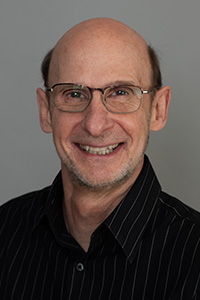
As a cancer patient or caregiver, telling your story can not only be a way to update loved ones about your condition or be a comfort to current patients, it can be healing for yourself. In this episode, we speak to Steve Buechler about his treatment for acute myeloid leukemia as well as his experience through survivorship.
Steve shares how writing helped him heal from the emotional effects of cancer. As an LLS volunteer, he now facilitates writing workshops for our LLS Community and wrote an article about how language matters when speaking to patients.
Join us to hear about Steve’s “odyssey” through AML, which he describes as not something he chose, but something that taught him more about life and himself.
Podcast: Play in new window | Download
Subscribe: Spotify | Pandora | Blubrry | Podchaser | More
CLICK HERE to participate in our episode survey.Mentioned on this episode:
- Acute Myeloid Leukemia
- Stem Cell Transplant
- Cord Blood Transplant Resources
- Graft-Vs-Host Disease (GVHD)
- How Steve Became Ralph
- Language Matters: What Supporters Say is Not Always What People with Cancer Hear
- Patti Robinson Kaufmann First Connection Program
- LLS Community – be informed of upcoming writing workshops
Additional LLS Support Resources:
- Information Specialists
- Free telephone/web patient programs
- Free booklets
- Financial support
- Young Adult Resources
- Survivorship Workbook
- Online chats
- Clinical Trial Support Center
- Caregiver support
- Support groups
- Free Nutrition Consultations
Support for this program is provided by: Bristol Myers Squibb.
4 thoughts on “Healing Through Writing: An Odyssey Through Acute Myeloid Leukemia (AML)”
How do you tell if you have AML. My primary thinks yes. My oncologist says no. My cappa cells have reached 71.
Hi Debbie,
We encourage you to contact our Information Specialists at 800-955-4572 or LLS.org/ContactUs. They can help guide you through getting a diagnosis.
Thank you. Steve had a lot of good insight to share. Just what I needed to hear.
Thank you Dr. Bhatnagar!This podcast on tumorlysis was so helpful with great information. I only wish I knew about it before my husband had it happen to him, and how the doctors all glossed over it like it was unlikely to happen To learn that there are labs and markers to indicate he may have been more susceptible to it and they did not know or recognize or do anything to prevent him from going into tumorlysis. I’m so upset by this. Even as I asked the oncologists, PAs if it was tumorlysis and they kept telling me “no it wasn’t”. He went into kidney failure and put on dialysis (too late in my opinion based on what I’ve learned after the fact). So many questions about how to go forward and what next steps are in my husband’s treatment of CLL/SLL and how his kidney issues can impact him and future treatments which are imminent in next 6-12 months.